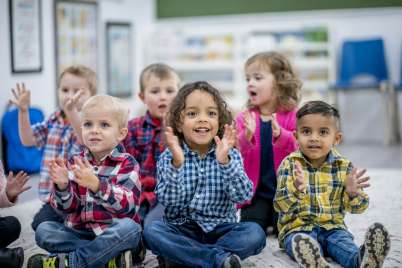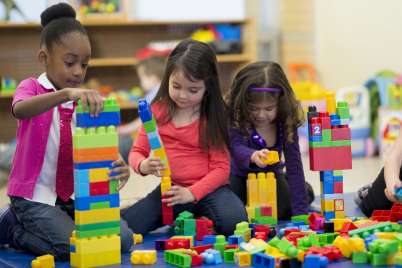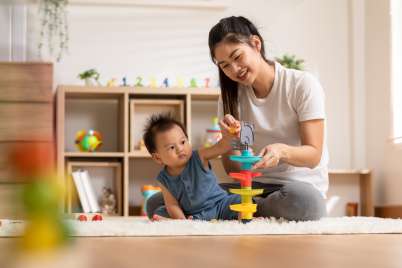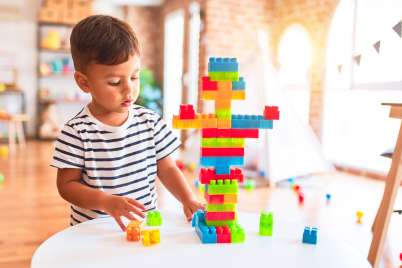


The brain-building benefits of physical literacy
We’ve been studying how providing early childhood educators with physical literacy training affects the children in their care.

APPLE Model helps early childhood educators incorporate physical literacy
The model was developed as a framework to help ECEs understand how to incorporate physical literacy into their playrooms and playgrounds.

Thrive by Five: Advocating for our children with government
Get ready to vote for kids

Does your child care centre encourage risky play? Here’s why it should
What to look for in a child care centre

Active for Life is studying the benefits of physical literacy programming for the early years
AfL to study physical activity at child care centres

Executive function is the key to success in school
Learn how children develop executive function

How to get kids ready for school before September
School readiness is child’s play

How to support the “air traffic control system” of your child’s brain
Executive function is a set of mental skills that work like the air traffic control tower at a busy airport. It’s a key part of development in the early years.

Active play for preschoolers
Young children learn best when there is no direct “teaching” of skills

Why relationships are so important when building a child’s brain
Interactions with caring adults are considered to be “serve and return” relationships; they’re not one-directional, but imply mutual response and activity.

Active play experiences help young children develop physical literacy
“Active play” includes both structured and unstructured activities. Learn more about the role of play in children development.

Build your child’s brain by giving them lots of experiences to explore
Building your child’s brain is like building a house. Learn more about kids’ brain development and how you can help along the way.

Building your child’s brain through physical literacy
The importance of regular activity in a child’s physical, cognitive, emotional, and social development

Building your child’s brain is like building a house
To explain how kids’ brains grow and develop, scientists use a metaphor: building a child’s brain in the early years is like building a house.